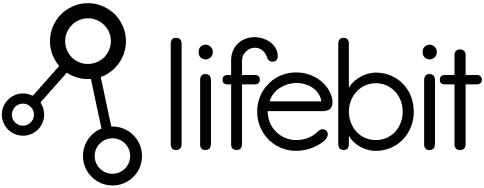Beyond Central Control: The Rise of Decentralized AI
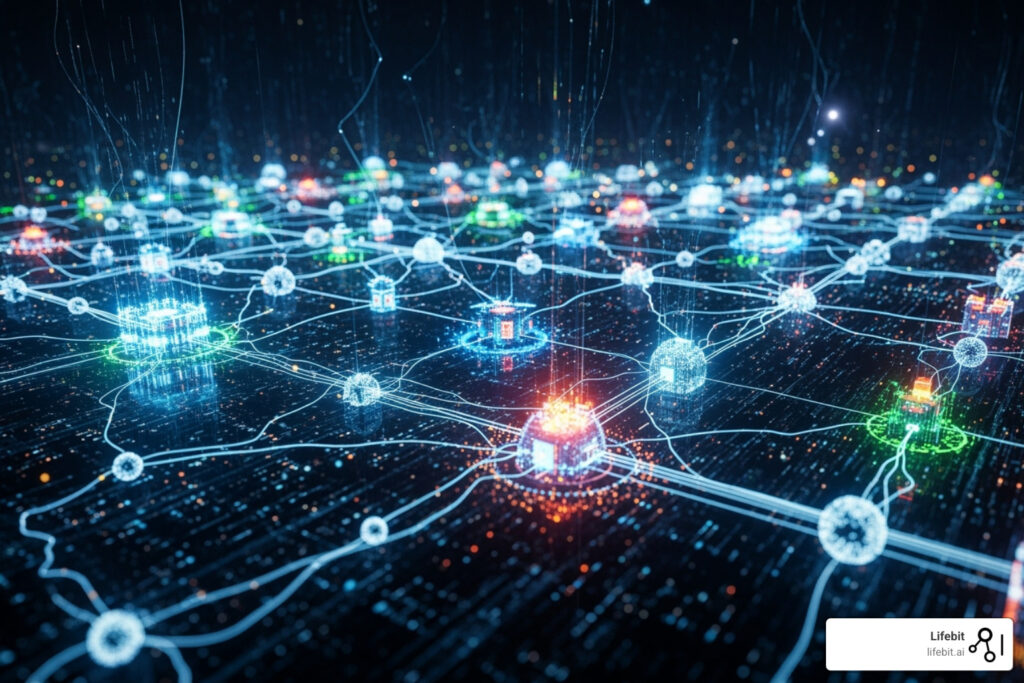
Decentralized AI platform: 2025’s New Era
The Inevitable Shift Away from Centralized AI
A Decentralized AI platform distributes AI capabilities across a network of independent nodes, avoiding concentration in centralized servers controlled by single entities. Here’s what you need to know:
Key Features:
- Data stays local – No need to move sensitive datasets to central servers
- Community governance – Participants collectively control platform development
- Transparent operations – All processes are auditable and verifiable
- Tokenized incentives – Contributors earn rewards for providing data or compute power
- Privacy-preserving – Advanced techniques like federated learning protect data privacy
Main Benefits:
- Improved data security and privacy
- Reduced dependency on Big Tech companies
- Lower barriers to AI innovation
- Improved bias mitigation through diverse participation
The current AI landscape reveals troubling centralization. Major players track nearly half of all users’ web browsing, and 49.6% of web traffic is from bots. Over 80% of people believe external forces unduly influence their news.
This concentration of power has led to data monopolies, algorithmic bias, and walled gardens that limit innovation—a failed promise of the internet’s democratic potential. The exponential growth of AI-generated content—ChatGPT alone produces 100 billion words daily—shows how a few entities increasingly shape our digital reality.
As Dr. Maria Chatzou Dunford, CEO and Co-founder of Lifebit, I’ve spent over 15 years building federated platforms for secure biomedical data research. My work developing Decentralized AI platform solutions has proven that distributed approaches can open up innovation while preserving privacy and security.
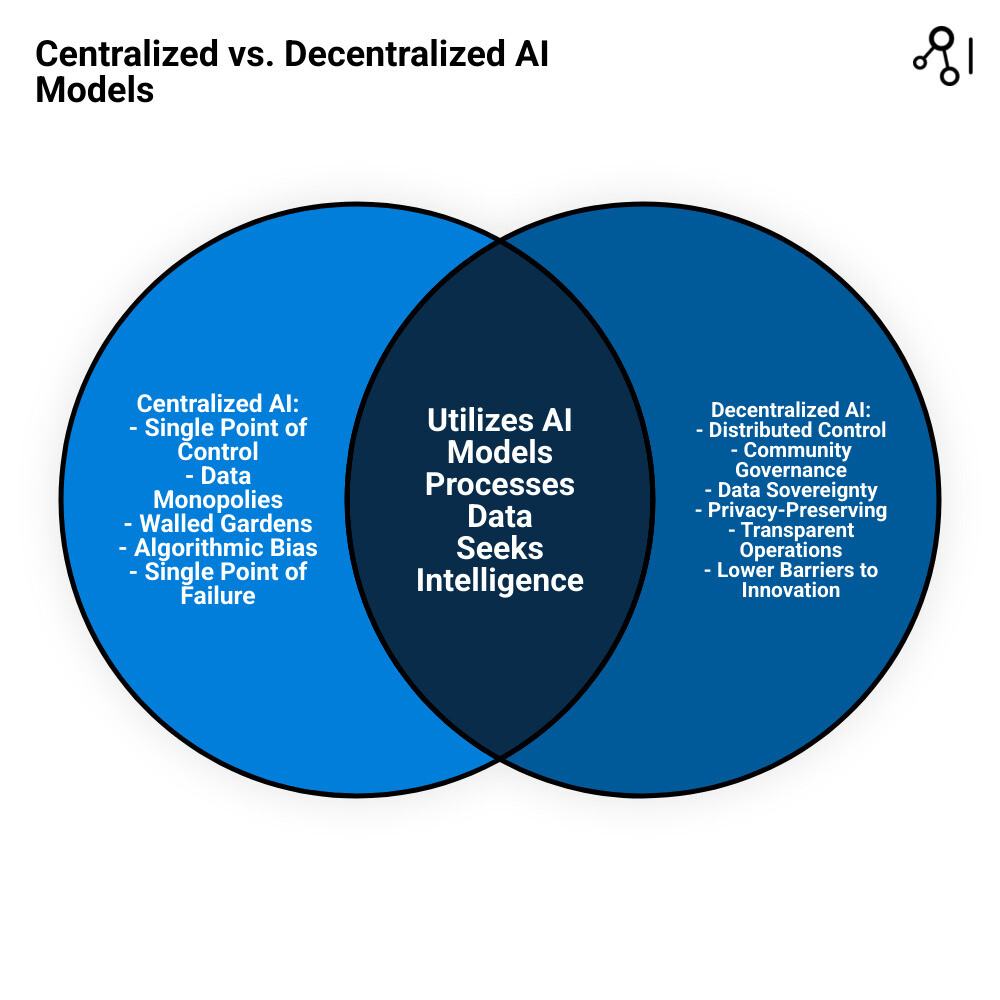
What is a Decentralized AI Platform and How Does It Work?
Instead of one giant, central library, imagine a network of neighborhood libraries sharing knowledge seamlessly. That’s what a Decentralized AI platform does for artificial intelligence.
Traditional AI collects data in one place, controlled by one entity. Decentralized AI flips this model, distributing AI capabilities across a network of independent participants who collaborate while controlling their own data.
This shift democratizes AI access. You no longer need a tech giant’s resources to build powerful AI. Smaller labs, healthcare organizations, and individual developers can participate in and benefit from cutting-edge AI development, much like digital publishing democratized the printing press.
The beauty of this approach lies in how it addresses the fundamental problems we see with centralized systems. No more data monopolies. No more algorithmic black boxes. No more single points of failure that can bring down entire systems.
| Parameter | Centralized AI | Decentralized AI Platform |
|---|---|---|
| Data Control | Centralized entity owns/controls data | Users/contributors retain data sovereignty |
| Transparency | Often opaque, proprietary algorithms | Open, auditable, verifiable operations |
| Cost | High infrastructure and maintenance costs | Shared costs, potentially lower barriers to entry |
| Scalability | Vertical scaling, potential bottlenecks | Horizontal scaling, distributed resources |
| Censorship Resistance | Vulnerable to single point of failure/control | Resilient, no single point of control |
Core Principles of Decentralization
Every robust Decentralized AI platform is built on four foundational principles that make it fundamentally different from what we’re used to.
Data sovereignty is a game-changer. Your data stays on your servers, under your control. AI models learn from your information where it resides, rather than you handing it over. This ensures you maintain ownership and control over your most valuable digital assets.
Transparency changes AI development. Instead of opaque algorithms, decentralized systems operate openly. You can see how models are trained, what data is used, and how the system evolves. This openness builds trust.
Incentivized participation via tokenomics creates a fair exchange. Contributing computing power, data, or model improvements earns you valuable tokens. This encourages participation and strengthens the entire system.
Collaborative model development brings together diverse perspectives. Instead of a single team building AI in isolation, researchers from different institutions and backgrounds can work together. This collaboration leads to more robust, less biased AI. Our work with Federated Data Governance shows how powerful this collaborative approach can be.
Key Technologies Enabling Decentralized AI
The magic of decentralized AI happens through the convergence of several breakthrough technologies.
Federated learning is the cornerstone of privacy-preserving AI. The model travels to your data, learns from it, and shares only insights—never the raw information. This is powerful in healthcare, as we’ve shown with Federated Technology in Population Genomics, enabling insights while keeping genetic data secure.
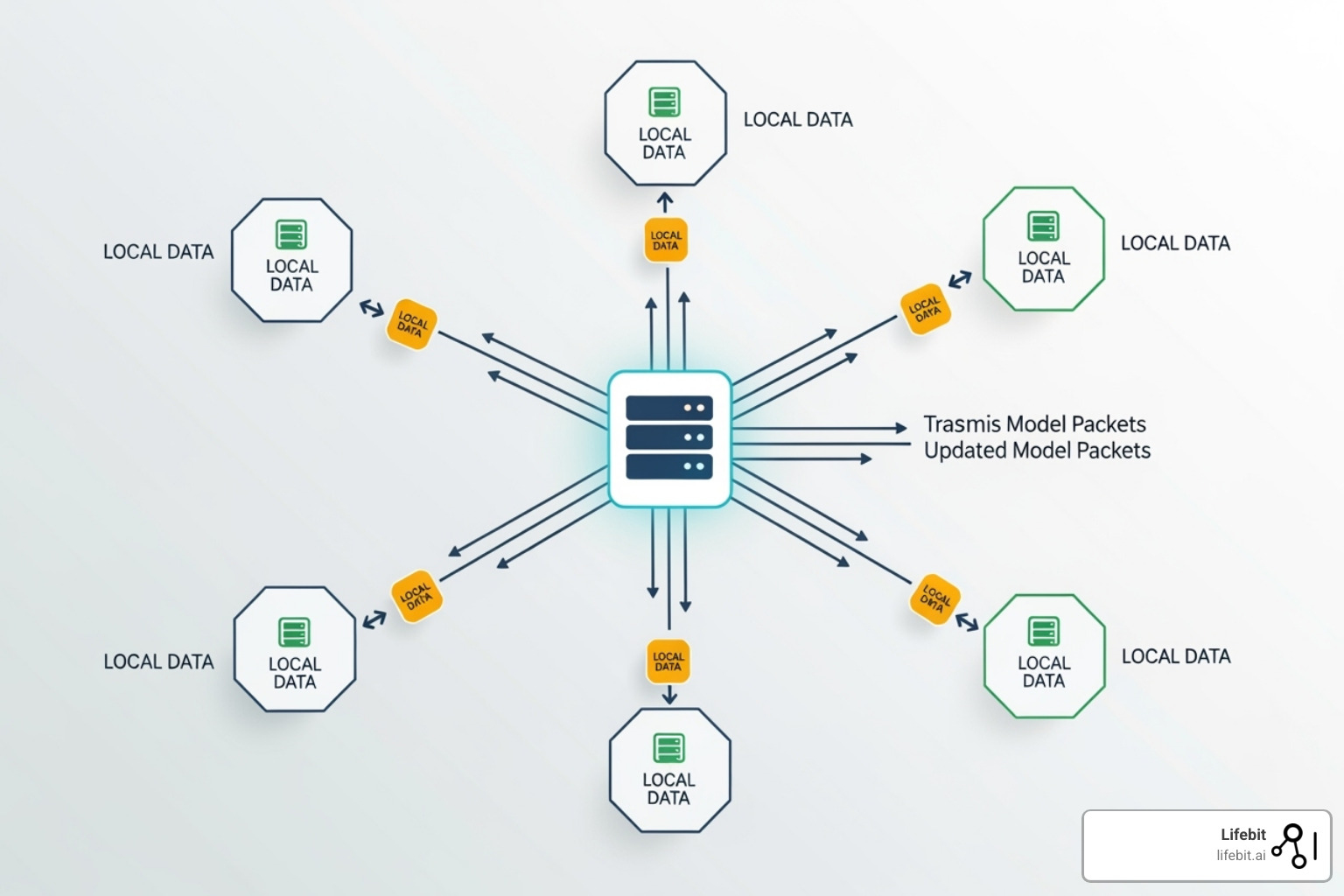
Blockchain technology acts as a trustworthy record-keeper. It tracks contributions, ensures fair compensation, and maintains a history of model development. Smart contracts automate the rules, ensuring fair play and rewards for all participants.
Zero-knowledge proofs add another privacy layer. They allow participants to prove they have valuable data or results without revealing the information itself, which is crucial for building trust while maintaining confidentiality.
Distributed computing harnesses the collective power of many computers across the network. Instead of massive data centers, it uses idle resources from participants worldwide. This makes AI development more affordable and sustainable, reducing dependence on centralized infrastructure.
These technologies work together to create an AI ecosystem where innovation thrives, privacy is protected, and benefits are shared fairly.
The Transformative Benefits and Current Challenges
Shifting to a Decentralized AI platform offers remarkable advantages over today’s centralized systems. It’s like moving from a single, overloaded highway to a network of connected roads where traffic flows better and no single breakdown causes a total shutdown.
Privacy gets a major upgrade when data stays local. Federated learning lets AI models learn from data without it ever leaving its source, dramatically reducing the risk of massive data breaches. It’s like a translator sharing only the meaning, not your exact words.
Trust becomes tangible through transparency. Open AI development with verifiable computations and auditable processes lets users see how decisions are made, eliminating mysterious black box algorithms.
Data silos finally crumble when organizations can collaborate securely without giving up control. Research institutions can work together on breakthrough findies while keeping their proprietary datasets safely locked away.
Innovation barriers drop significantly for smaller players. When computing power and AI tools are shared across networks, brilliant developers and researchers can access resources that were previously out of reach.
The performance results speak for themselves. Recent scientific research on AI performance shows decentralized AI achieving 95% accuracy, 94% precision, and 96% recall. These numbers prove that distributing intelligence doesn’t mean sacrificing quality.
Addressing Data Privacy, Security, and Bias
The privacy revolution starts with a simple principle: your data stays put. When AI models train on data that never moves, the security landscape changes. Instead of creating honey pots of valuable information that attract hackers, sensitive data remains distributed and protected.
Verifiable computations add another layer of trust. Through blockchain and cryptographic proofs, you can verify that AI processing happened correctly without exposing the underlying data.
Our experience with Privacy-Preserving Statistical Data Analysis on Federated Databases demonstrates how this works in practice, enabling groundbreaking biomedical research while keeping patient data completely secure.
Bias mitigation is more effective when AI models use diverse, global data sources instead of the narrow datasets of centralized systems. Community governance ensures more voices are heard, leading to fairer outcomes that reflect real-world diversity.
The Problems to Overcome
Building a Decentralized AI platform isn’t simple. The technical complexity is daunting, requiring sophisticated coordination across distributed networks.
Scalability presents challenges. While distributed systems can grow infinitely in theory, making them run efficiently at scale requires careful engineering. Blockchain, for instance, can be slower than traditional databases.
Data quality control is trickier when contributions come from many sources. We need smart mechanisms to reward good data and discourage poor-quality contributions.
Regulatory uncertainty adds another layer of complexity, as different countries have different rules about AI, data sharing, and blockchain.
Adoption barriers are significant. Convincing organizations to shift from familiar centralized systems requires time, education, and proven success stories.
Coordination challenges emerge when communities need to make decisions together. Reaching consensus without a single authority can be more complex than top-down management.
Despite these challenges, the potential rewards make the effort worthwhile as we work to make decentralized AI more accessible and reliable.
Real-World Impact: Where Decentralized AI is Making a Difference
The promise of a Decentralized AI platform isn’t theoretical—it’s already changing how we approach pressing challenges. From medical research to global supply chains, these distributed systems prove that collaboration beats concentration.
Revolutionizing Healthcare and Life Sciences
Healthcare represents a perfect opportunity for decentralized AI, with sensitive data that can’t move easily but holds immense collaborative research potential.
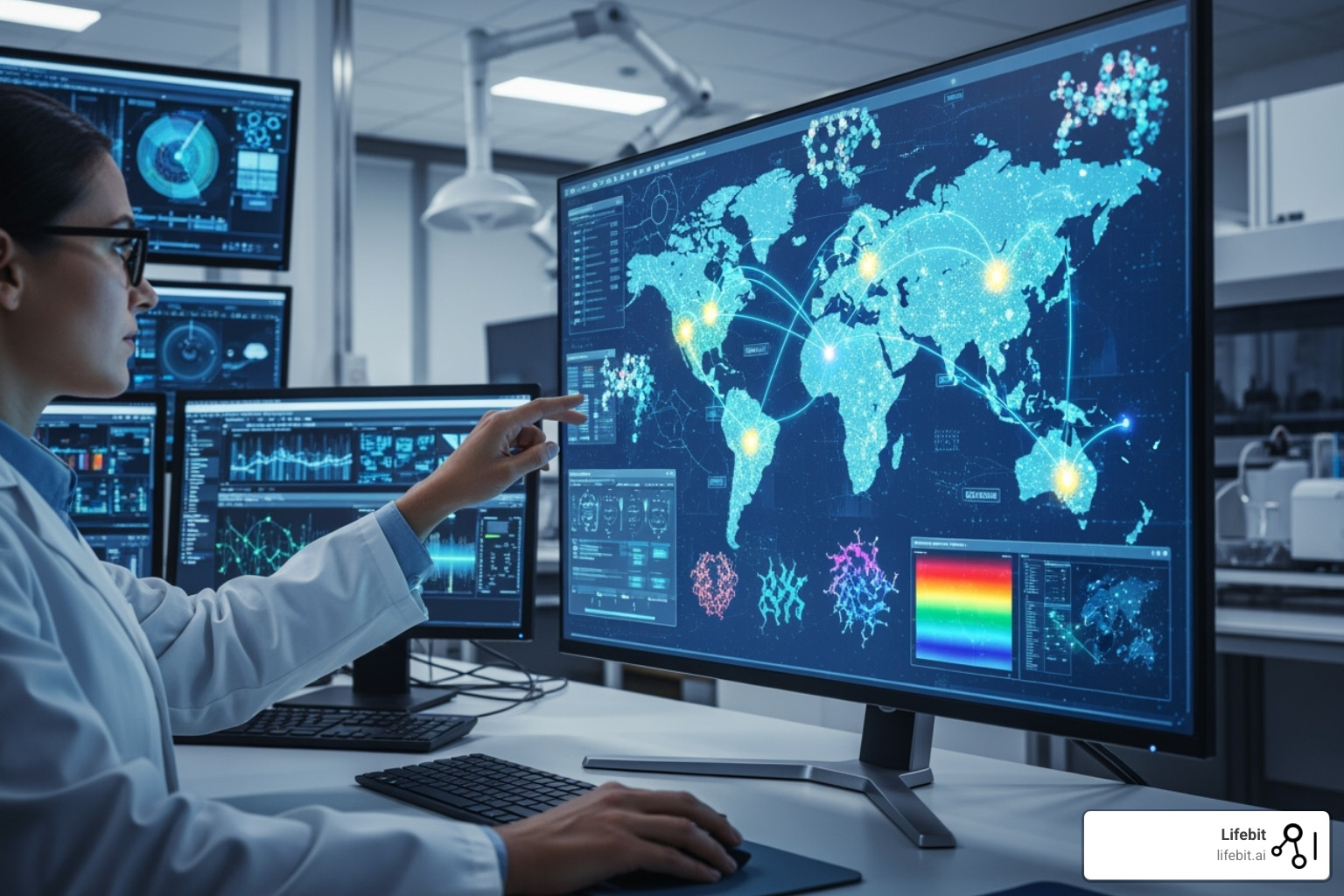
Consider secure clinical data analysis. Traditionally, hospital collaboration required complex legal agreements and risky data transfers. A Decentralized AI platform changes this. AI models can train across multiple hospitals simultaneously, learning from unique patient populations without sensitive data ever leaving its secure location.
Drug findy is also changing. When researchers can analyze vast, distributed datasets without compromising patient privacy, innovation accelerates. Our Lifebit Federated Trusted Research Environment Global Precision Medicine platform exemplifies this, enabling secure global collaboration.
Population genomics particularly benefits from this approach. Understanding genetic variations requires analyzing diverse global data, which is complex for centralized systems. Through concepts like Federation, researchers can conduct large-scale studies that were previously impossible, yielding more inclusive medical insights.
Real-world evidence generation is increasingly important for understanding treatment performance. Decentralized AI enables continuous learning from patient outcomes across multiple healthcare systems, improving treatment protocols and patient safety in real-time.
Changing Other Key Industries
Beyond healthcare, decentralized AI is reshaping industries by enabling collaborative intelligence.
Supply chain management is a compelling example. Traditional systems struggle to adapt to disruptions. Decentralized AI enables autonomous agents across the network to collaboratively optimize logistics, forecast demand, and manage inventory.
The finance sector is also being transformed. Real-time fraud detection is more powerful when institutions collaborate on threat intelligence without sharing customer data. AI-powered smart contracts can also eliminate intermediaries, reducing costs and increasing efficiency.
Edge computing and Internet of Things (IoT) applications are a natural fit. A Decentralized AI platform allows smart sensors, industrial machines, and autonomous vehicles to learn collectively while processing data locally, creating smarter networks without compromising privacy or performance.
The Role of a Decentralized AI Platform in Research
Decentralized AI removes traditional data-sharing bottlenecks in scientific research while strengthening privacy.
Multi-institutional studies become simpler when researchers avoid complex data sharing agreements. Instead, AI models travel to the data, learn locally, and share only insights. This opens up research possibilities previously blocked by regulatory or technical constraints.
The acceleration of insights is remarkable. When researchers can access a global network of computational resources and datasets, the time from hypothesis to findy shrinks. Our work on Federated Data Analysis demonstrates how this distributed approach can speed up research while maintaining high standards of data security.
Compliance maintenance becomes a built-in feature. Instead of treating regulations like GDPR or HIPAA as obstacles, decentralized platforms make compliance part of the architecture. Data never leaves its approved environment, and audit trails are automatically maintained.
The Future is Distributed: Outlook and Implications
The trajectory for Decentralized AI platform technology is remarkable. The market is predicted to grow at a staggering 40% CAGR between 2023 and 2030. This aligns with massive growth in the broader AI and AI in Blockchain markets, placing us at the intersection of a transformative trend.
What excites me most is the rise of autonomous AI agents operating on a Decentralized AI platform. These agents can perform complex tasks, negotiate, and make decisions without human oversight, potentially revolutionizing everything from personal schedules to industrial systems.
Token economics will play an increasingly central role. Well-designed tokenomics create self-sustaining ecosystems where contributing data, compute power, or model improvements is directly and fairly rewarded.
The long-term societal implications are profound. We’re moving toward a more equitable AI ecosystem where powerful AI capabilities aren’t locked behind corporate walls. As Professor Ramesh Raskar highlighted in his talk at EmTech Digital in May 2024, open uping AI’s true potential requires collaborative effort from businesses, governments, and individuals.
This vision resonates with our work at Lifebit. We are contributing to a future where AI serves humanity broadly, rather than concentrating power in the hands of a few.
Building a Future-Proof Decentralized AI Platform
Creating a future-proof Decentralized AI platform requires attention to several critical elements.
Open-source collaboration is foundational. Open development with community involvement prevents new “walled gardens” and ensures no single entity controls the platform’s evolution, accelerating innovation.
Interoperability standards are crucial. For the ecosystem to thrive, different platforms and models must communicate seamlessly. Without standards, we risk creating the same fragmented silos we aim to replace.
Robust governance frameworks are paramount as power shifts to communities. This means establishing clear, fair mechanisms for decision-making, dispute resolution, and ethical oversight.
User-centric design cannot be overlooked. Despite the underlying complexity, platforms must be accessible and easy to use to achieve widespread adoption and impact.
Finally, the federated data lakehouse architecture is a critical evolution. Our insights into the Key Features of Federated Data Lakehouse show how this approach provides the flexibility and scalability needed for complex AI applications while maintaining strict data control.
The future is distributed. Those who accept this shift will be best positioned to benefit from the more open, equitable, and powerful AI ecosystem that’s emerging.
Frequently Asked Questions about Decentralized AI
As we’ve explored decentralized AI, you might have some lingering questions. Here are the most common ones.
How does decentralized AI differ from federated learning?
Federated learning is a key tool within the larger decentralized AI toolbox. It’s a privacy-preserving technique where models learn from data locally, sharing only insights.
A Decentralized AI platform is the entire ecosystem, including federated learning plus blockchain governance, community development, and tokenized rewards.
Think of federated learning as the engine; the decentralized platform is the entire vehicle, providing governance, incentives, and distributed computing. Both work together, but the platform provides the complete framework.
Is blockchain necessary for all decentralized AI applications?
Blockchain isn’t always required, but it open ups the full potential of decentralized AI. You can use federated learning without it for privacy alone.
However, blockchain enables the aspects: trustless verification, transparent governance, and fair reward systems. It allows for verifiable data provenance, automated compensation, and prevents single-entity control.
For a truly democratic Decentralized AI platform, blockchain provides the essential trust layer that makes community-driven collaboration possible.
What are the first steps for an organization to adopt a decentralized AI approach?
The path to adoption doesn’t have to be overwhelming. We recommend starting small to build confidence.
Begin with your most sensitive data. Identify datasets that are too valuable or private to move but could yield incredible insights through AI analysis. Healthcare records or proprietary research are perfect candidates.
Launch a pilot federated learning project. Start with a specific use case, like analyzing outcomes across hospital departments. This gives your team hands-on experience with privacy-preserving AI.
Explore existing platforms and communities. Research Decentralized AI platform solutions that align with your industry. Look for active communities, robust security, and proven track records.
Partner with experts who understand your journey. Working with specialists in federated learning and decentralized AI can accelerate your success while helping you avoid common pitfalls.
This is about gradually building capabilities that give you more control, better privacy, and access to insights that were previously unobtainable.
Conclusion: Embracing a New Paradigm for Artificial Intelligence
We stand at a crossroads in AI’s evolution. The shift toward a Decentralized AI platform is about reimagining how we collaborate, innovate, and share knowledge.
We’ve seen how decentralized AI addresses the core challenges of centralized systems. Improved privacy keeps data with its owners, improved security reduces breach impact, and reduced bias emerges from diverse, community-driven development.
The change is happening now. In healthcare, researchers collaborate globally without compromising privacy. The 95% accuracy achieved by decentralized systems proves that distributing intelligence improves quality.
Challenges like technical complexity and regulatory uncertainty remain, but these are natural for such a significant paradigm shift. Crucially, we are breaking down data silos and lowering entry barriers for developers worldwide.
The path forward leads to a more human-centered and open AI future where innovation isn’t locked behind corporate walls. We’re building AI systems that reflect the diverse needs of global communities.
At Lifebit, we’ve witnessed this change in biomedical research. Our federated platforms show how secure, privacy-preserving technology can enable groundbreaking findies while keeping health data protected and local. Multi-institutional studies that once took years can now happen in real-time, accelerating medical breakthroughs.
This is about ensuring AI serves as a true public good. When we accept collaborative model development and transparent operations, we create systems that work for everyone.
The future is distributed. The 40% CAGR growth in decentralized AI markets shows this is happening now. Every organization choosing collaboration, every researcher prioritizing privacy while pursuing findy, and every developer building with transparency contributes to this new paradigm.
To learn more about how we’re pioneering this future through secure, federated approaches to biomedical data, explore Lifebit’s federated biomedical data platform. Together, we’re not just building better AI—we’re building a better world.
